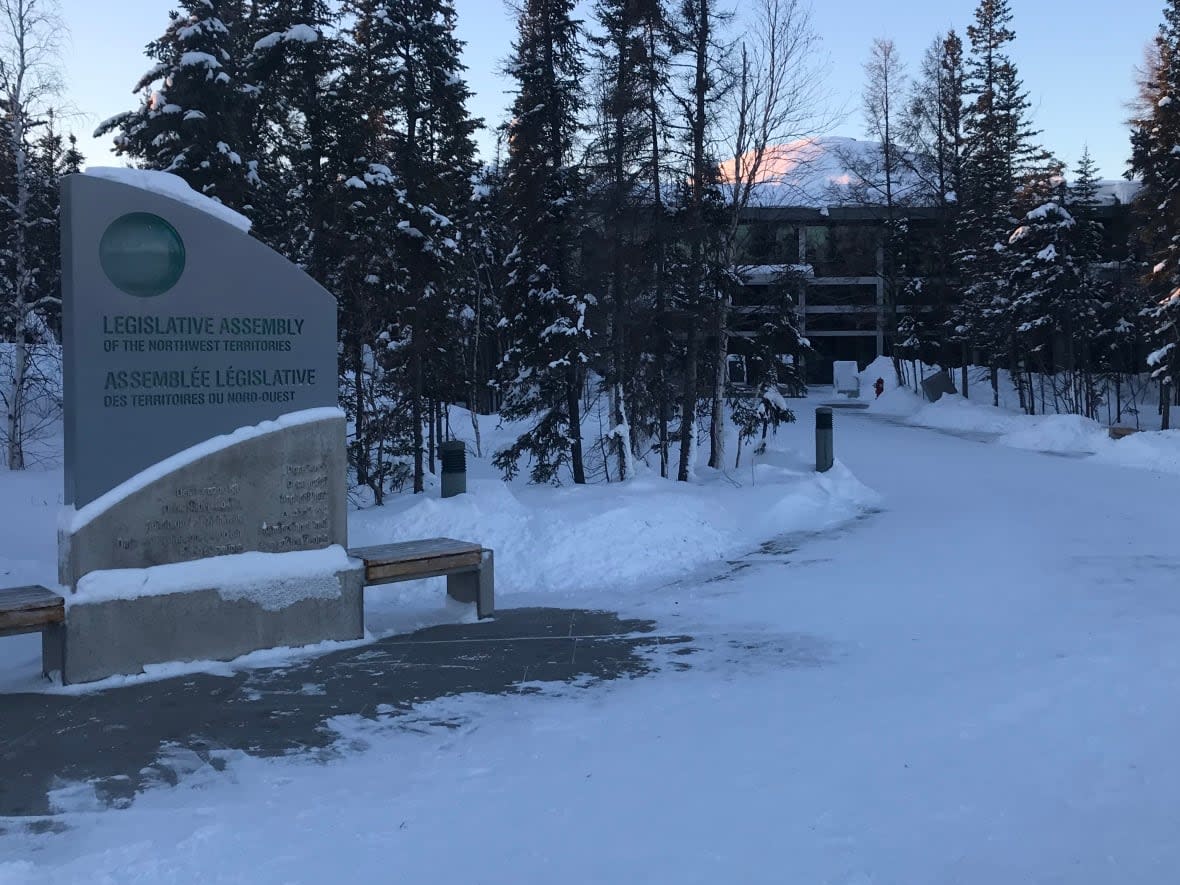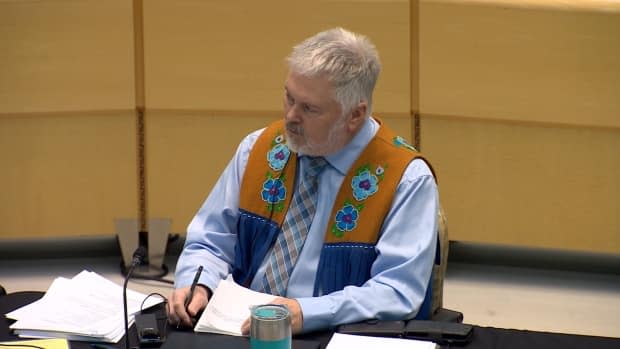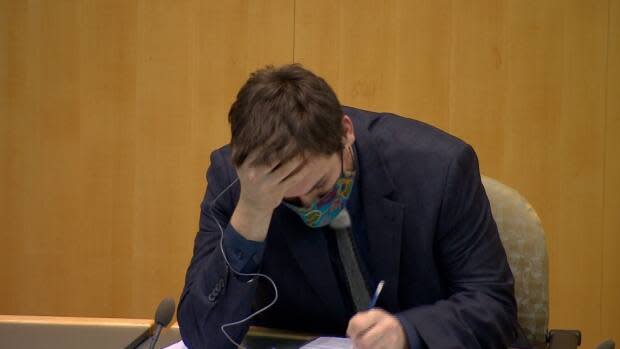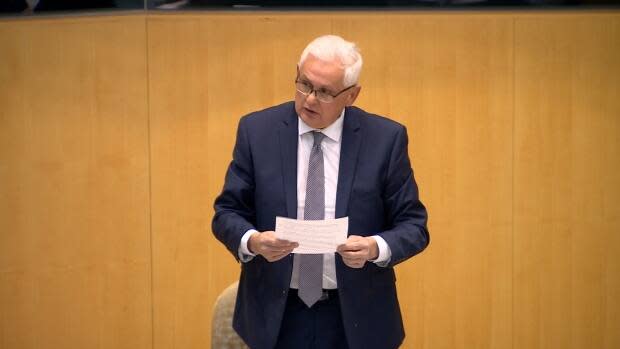N.W.T. MLAs pass biggest ever capital budget, again

The N.W.T. Legislative Assembly passed the largest ever capital budget seen in the territory, surpassing even last year's $451.2 million spending plan, which was formerly crowned largest ever.
Wednesday's vote passed the $506.6 million budget with all but two MLAs voting in favour, though even supporters expressed frustrations and areas for growth.
Kevin O'Reilly and Rylund Johnson were the two members who opposed the budget, stating fears of the territory hitting its borrowing limit.
O'Reilly, the MLA for Frame Lake, said he hopes to "send cabinet a clear message to get our fiscal house in order."
"We've got two years left to steer this ship in the right direction, get serious about raising some revenues and start spending on real priorities like housing," O'Reilly said.
He called the territory's spending plan "an unsustainable path" and restated that "we're not just on the edge of a fiscal cliff, we're over the side now," as he's said in previous sessions.

O'Reilly was among the two members to vote against last year's budget, along with Steve Norn, former MLA for Tu Nedhé-Wiilideh.
O'Reilly said that the money the N.W.T. is slated to spend "is totally out of whack" with his priorities as a member and stated priorities for the assembly, specifically noting the mere two per cent allocated to housing.
"Forty three per cent of the N.W.T. dwellings in 2019 had at least one housing problem," he said. "Those problems relate to affordability, suitability and adequacy. If that's not bad enough, core housing needs have actually increased by 11 per cent over the last 10 years."
He noted almost one thousand people on the housing waitlist in the territory, calling it "a shameful record that is perpetuated in these capital estimates."
'An absolutely terrible track record'
Johnson, member for Yellowknife North, similarly pointed to fiscal irresponsibility, stating the government shouldn't be building new projects when "we have an absolutely terrible track record of maintaining what we have."
"I believe we are setting future assemblies and future generations up for failure and crumbling infrastructure," he said, adding that he doesn't "believe due diligence was done by cabinet to take us where we need to be."

Johnson said that he would have voted in favour of the spending plan "with five more million dollars in housing [and] permanent long-term funding for our housing infrastructure."
Though Johnson noted that an N.W.T. budget has never been voted down in the history of the assembly, he still voted against it, calling it "insulting" to pass a budget that builds "zero new houses."
'We've got to move ahead'
Rocky Simpson, MLA for Hay River South, called the budget "light" on community infrastructure, housing and resource development.
"However I will vote in support of this budget as we've got to move ahead," he said, adding that he hopes cabinet notes his criticisms.

Freida Martselos, MLA for Thebacha, stood in strong support for the budget.
She said the plan shows a refreshing consideration for communities outside of Yellowknife though the majority of the funds are still concentrated within the territory's capital.
"We know at least we're going to have some new buildings this time, that hasn't happened in regional centres and communities for some time," she said. "We get the crumbs, always."
Martselos said that "doing business" and investing "is the only way we put food on the table."
"There has to be economic growth in the business sector," she said.
Martselos noted the territorial government will have to be cautious to ensure investment dollars stay in the North but that those considerations are being looked at in the N.W.T. procurement policy currently under review.
"If we're going to have economic recovery, this is the way to go," she said.
Infrastructure is receiving the largest allocation of the $502.6 million budget, with $150 million dedicated to building roads, highways and bridges.
About $90 million of the capital budget is carryover from previous years and approximately $216 million comes from federal funding.

 Yahoo Movies
Yahoo Movies 
